By Tyler Callister
A 16-year-old girl, Camille, runs in the dark under streetlights. Panting, she suddenly stops. Her eyes widen with a sudden realization.
That image sets the stage for the rest of “Sonder,” a 26-minute short film, which follows Camille (Analiese E. Guettinger) through the drama of living with her mother (Emilie Talbot) in the wake of her father’s death. Exploring modern issues in family and relationships, the film is set against the backdrop of San Francisco.
Directed by Academy of Art University School of Motion Pictures & Television (MPT) alumna Isa Grassi, the student film made a splash at the Schools of Entertainment’s annual Oscars-style awards night NXTUP Fest, winning four awards, including Best Picture Over 12 Minutes. The film also reached beyond the Academy, taking a handful of wins at the 2022 Independent Shorts Awards, including Platinum Awards for Best Acting Duo, Best New Director, and Best Student Short.
The film’s origin story begins with late-night conversations between Grassi and the film’s screenwriter, MPT alumna Samantha McGurk. The pair, who had been teamed up by Vice President of Brand Storytelling and the Schools of Entertainment Jana Memel, knew that they wanted to focus the story on a teenage girl. They began to reflect on what it’s like to be a teenager and the moment when you realize your parents are human, too.
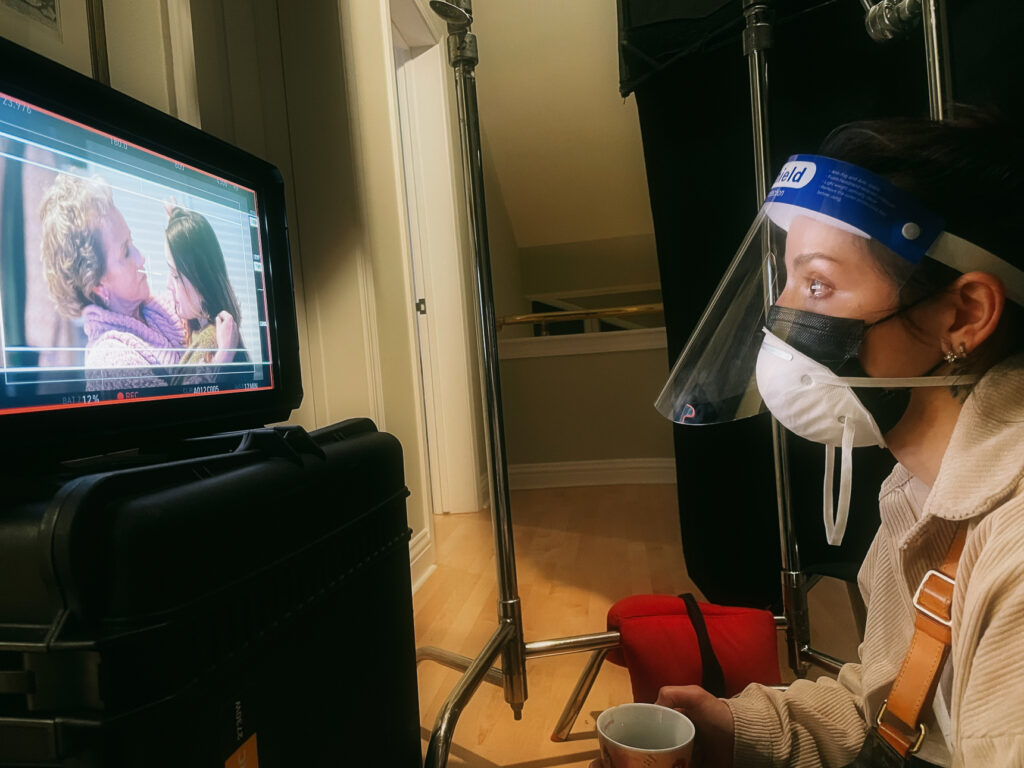
McGurk explained that the feeling is represented in the film’s title.
“‘Sonder’ is a realization that other people’s lives are just as vibrant, complex, and unique as your own,” said McGurk. “As different as you are to the world, the person on the other end is feeling the very same way. When you’re a teenager, that’s when your brain thinks you’re the most important thing. ‘Sonder’ is becoming aware that ‘I am not the only human being in this world, and my mom and dad are actual human beings in this world who have lives of their own.’”
In the film, the character Camille discovers her recently deceased father’s phone in his jacket. As she scrolls through his smartphone photos, she realizes her father was more complex than she had thought.
“Your parents have a life, too. That’s my message in the film,” Grassi explained.
Filming during the pandemic
When Grassi and McGurk first drafted the story for “Sonder,” they had planned to start shooting the film in April 2020. But the COVID-19 pandemic hit that March, ultimately delaying their initial plans. By the time Grassi and her team started shooting the film in late March 2021, their approach to making the movie was completely different.
Donning N95 masks and practicing social distancing, Grassi could only keep 10 to 15 people on set at a time. It also limited the amount of time to shoot—they had to get it done in just five days.
“If we had taken two weeks, everyone would have had to get tested on the weekend again and quarantine again,” explained Grassi. “So, basically, it would have taken a whole month.”
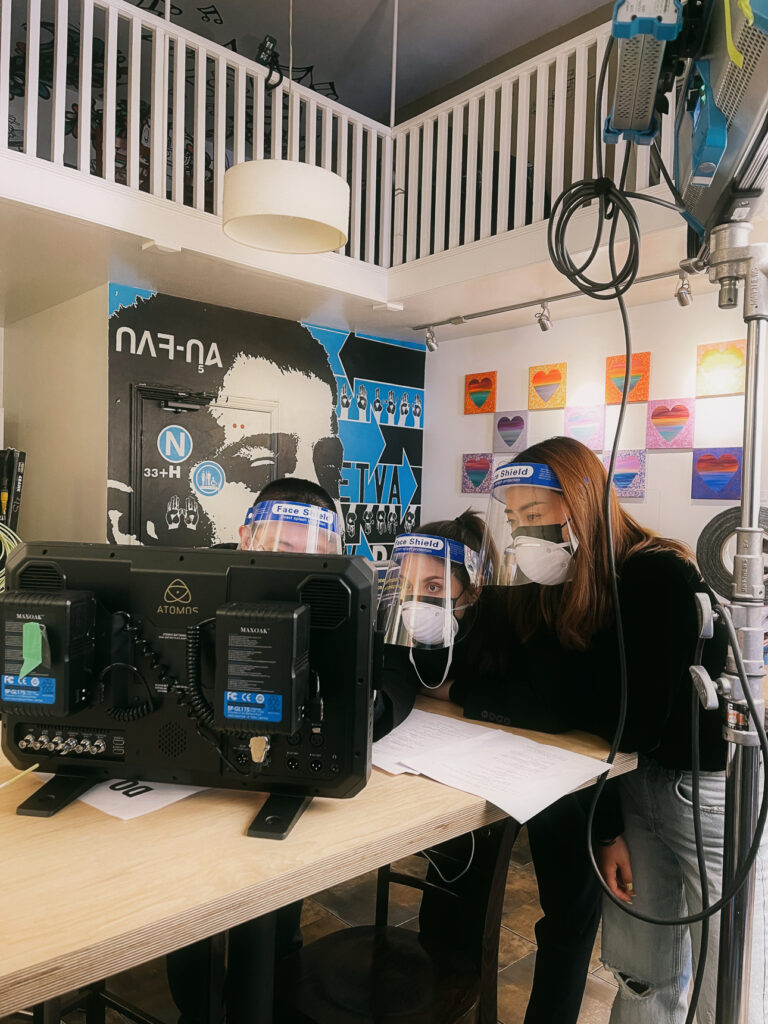
Given the constraints, Grassi said she was fully immersed in the filmmaking process, which she found “fascinating.”
“You enter this bubble, and you live in a parallel world. It’s so weird,” said Grassi. “You’re breathing the character. You’re breathing their world.”
Despite the complications of the pandemic, Grassi said she’s grateful for how it turned out. The quicker pace kept the rhythm of the film moving.
“Everything happens for a reason,” said Grassi. “I’m a firm believer.”
Supporting Grassi throughout the process of pandemic filmmaking was her producer, MPT alumna Dingding Hu. In addition to basic production duties like coordinating the budget, limited schedule, and permits, Dingding had to navigate health and safety policies, including making sure the cast and crew were properly masked and tested for COVID.
“I’m a producer; everything is safety first,” said Dingding. “With COVID, it was a challenge.”
Though the film often had to shoot at night in San Francisco, the crew did their best to be prepared for any unexpected situations. While shooting a scene at a café, an unknown person tried to break onto the film set.
“Luckily, we hired security, who escorted him out,” said Dingding.
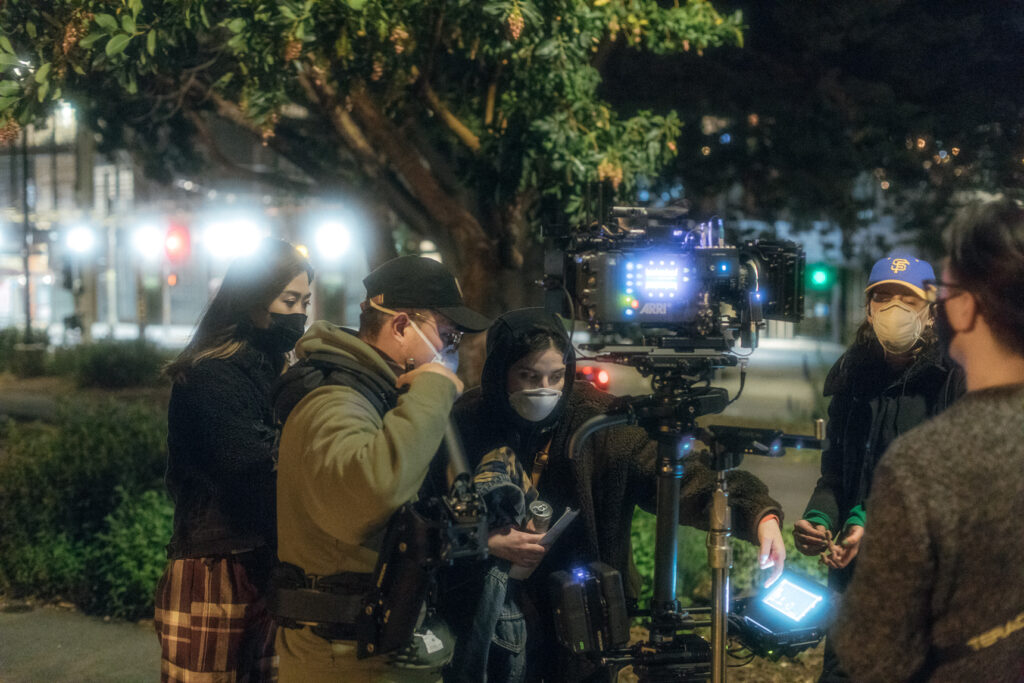
The filmmaking experience—although stressful—brought Dingding closer to Grassi. The producer believes the two will collaborate in telling stories together in the future.
“The [happiest] thing is that I found a film soulmate,” said Dingding.
In addition to Dingding’s production work, Grassi explained that Memel was instrumental in bringing “Sonder” to life.
Working as a supervisor and executive producer, Memel was involved from the beginning. She gave Grassi and McGurk feedback on the original screenplay and watched over the entire production. In addition, when Grassi’s assistant director left part way through filming, Memel stepped in.
“[Memel] and I worked close to each other the whole time, from development to the finished product,” she said.
Grassi said she was inspired by Memel and appreciates everything she brought to the production.
“She was like a mother figure,” she said.
A natural leader
According to Memel, what made the film successful was Grassi’s natural ability to bring the crew together. Memel remarked that Grassi was able to keep her cool as problems arose.
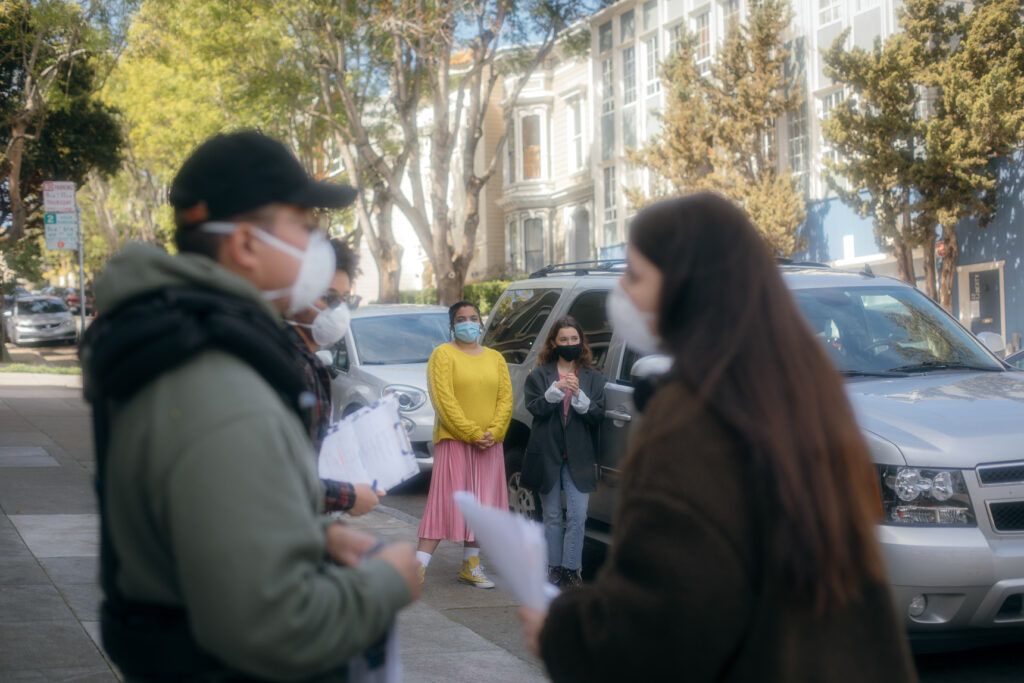
“I seldom work with a student director who is as prepared and professional as she was,” said Memel. “[Grassi] has this demeanor on set that no matter what’s going on, she stays calm, and that makes everybody else calm. She came and knew what she wanted every day.”
As an example, Memel pointed to how Grassi creatively used her parents’ home in San Rafael as the main set for the film. First, they had to use the same house as the scene for two different characters’ homes. Secondly, the crew had to make the large suburban house feel like a small 19th-century San Francisco home.
“We had to stage it as if it was a very small but tasteful bohemian house,” explained Memel. “That couldn’t have been farther from what this room was. And instead of saying, ‘This is impossible,’ [Grassi] went with the flow. She accepted the reality … worked with the art department to make that happen, and then modified her shot list to accommodate it. That’s a very mature director.”
An open ending
Inspired by European and Asian films, Grassi opted to close “Sonder” with an open ending. The director shared that she prefers authentic human stories that don’t always have a clear ending.
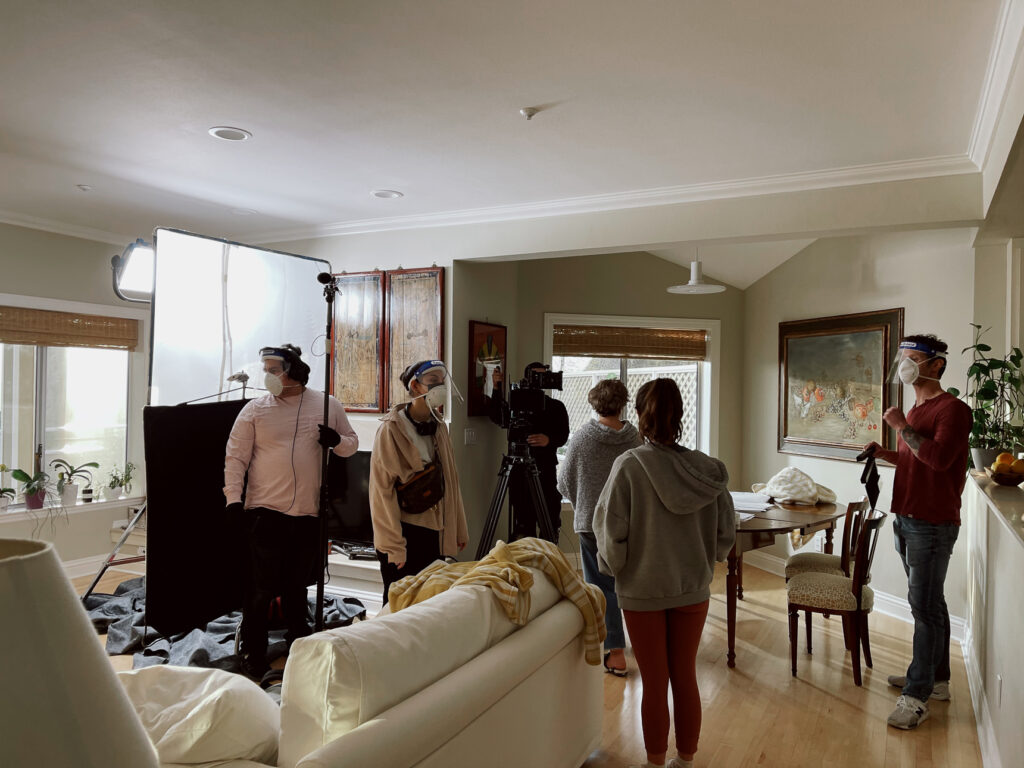
“I gravitate towards indie—more realistic slice-of-life movies,” said Grassi. “I watch movies that make me feel something, make me think, and use my brain.”
Like her film, Grassi’s creative career remains open-ended. After completing her M.F.A. in directing this past spring, Grassi returned to the Academy this past summer to begin work on a second M.F.A. in screenwriting.
For now, Grassi is happy to be showing her film on the festival circuit and sharing a view of life with open endings.
“In a lot of filmmaking, you need to have an end; things need to conclude somehow. But life doesn’t work like that,” she said. “That’s why my film ends without an ending. It’s actually a beginning.”
“Sonder” will be screening at the Roxie Theater on Monday, Oct. 10, as part of the SF Short Film Festival. For more information and to purchase tickets, please visit the film’s festival page.
![[SONDER]Poster_Original02_edited](https://cdn-newspaper.pressidium.com/wp-content/uploads/2022/08/SONDERPoster_Original02_edited-e1660155705707.jpg)